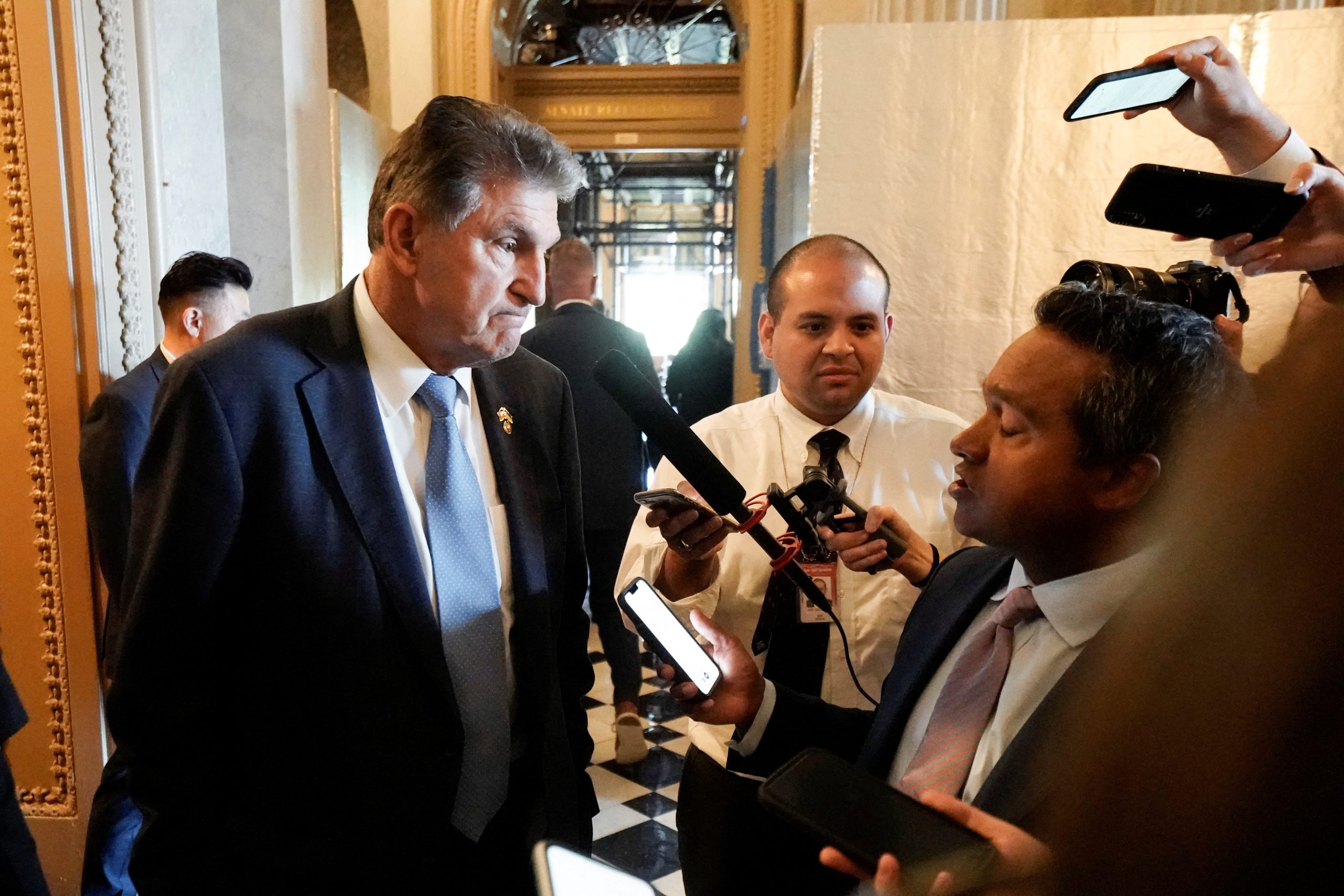
Samuel Case, FISM News
[elfsight_social_share_buttons id=”1″]
Following his introduction of the now-passed $740 billion Inflation Reduction Act (IRA), Senator Joe Manchin (D- W.V.) has been bleeding support. With the package’s $369 billion in climate spending, $80 billion for expanding the IRS, and corporate tax increases, Manchin is scrambling to ease concerns about government overreach.
Following the bill’s signing ceremony yesterday, Manchin did just that by speaking publicly in an attempt to avert fears over the ramifications of the Democratic plan.
“I’m going to follow to make sure the IRS doesn’t harass anybody, and I would encourage all of my political friends to make sure their staffs are in contact with the IRS,” Manchin told Just the News, saying he will also “make sure the EPA doesn’t overreach.”
Last week, Manchin told West Virginia MetroNews’ “Talkline with Hoppy Kercheval,” that small businesses and families making under $400,000 have no reason to be concerned.
“As the IRS office, as far as Janet Yellen and Treasury, nobody making — no household that makes less than 400,000 will be — nothing changes. Most West Virginians pay their taxes because it’s all earned income. They get a check, taxes are deducted from their check, and we go on. That’s how most West Virginians and most Americans, working people, pay their taxes,” Manchin said according to a Breitbart transcript.
He later explained, “This is not geared towards any small business, it’s not geared towards any family under $400,000, and it’s only geared towards those complicated, convoluted companies that we have never been able to pursue because we don’t have the resources.”
President Biden has also insisted that the spending package will not raise taxes on the middle class. “I’m keeping my campaign commitment. No one, let me emphasize this, no one earning less than $400,000 a year will pay a penny more federal tax,” he said before signing the legislation.
Despite Biden and Manchin’s claims, the Heritage Foundation estimates that households in the $75,000-to-$200,000 income bracket will account for 29.6% of projected tax earnings as a result of the new legislation.
The Congressional Budget Office similarly believes that Americans earning under $400,000 will pay $20 billion more in taxes through fiscal year 2031, the New York Post reports.
According to polling by YouGov America, Manchin’s favorability rating plummeted by 29 points since introducing the act in collaboration with Senate Majority Leader Chuck Schumer (D-N.Y.).
